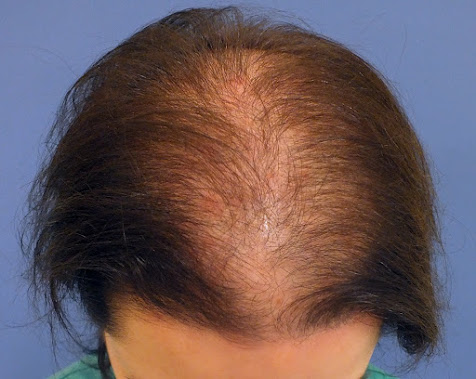Everything You Need to Know About Weight Loss and Hair Loss
Hair Loss After Weight Loss: Is It Possible ?
Hair loss with weight reduction is caused by nutrient deficits and the additional effects that fast weight loss might have on your body. A disease known as acute telogen effluvium (TE) has been related to sudden weight loss and restricted diets as one of the most common causes of severe hair loss on the scalp. TE often starts three months after a triggering event, such as rapid weight loss, and lasts around six months. Androgenic alopecia is a kind of TE that lasts more than six months. It is also known as male or female pattern baldness.
Hair Loss Caused by Weight Loss Here are some of the major ways that weight loss might affect your hair's health :
Hair loss has been linked to fast weight loss, calorie restriction, nutritional shortfalls, and psychological stress in multiple studies, all of which are common in crash dieters. The most prevalent causes of hair loss, according to a survey of 180 women with diffuse hair loss, were iron deficiency and psychological stress. Crash diets were also the cause in eight of the research participants. Crash diets can lead to a deficiency in some essential fatty acids, as well as a lack of zinc, protein, and calories, which can lead to hair loss.
Low-protein diets: Hair loss can be caused by a lack of protein in the diet. In persons who lose their hair, certain amino acid deficiencies, such as histidine, leucine, valine, and cysteine, are common. When your protein needs aren't met, your body prioritizes important protein-dependent processes including tissue repair, digestion, maintaining pH and water balance, and hormone synthesis.
Weight reduction surgery is connected to fast weight loss and typically results in protein, vitamin, and mineral deficiency, which leads to hair loss. In a 2020 research of 112 females who had had sleeve gastrectomy, 72 percent of the participants reported hair loss following surgery.
Restrictive diets, such as crash diets, that exclude whole food categories can cause hair loss as a result of nutritional deficiency or stress. Deficits in iron, zinc, protein, selenium, and essential fatty acids have all been associated to hair loss. Hair loss has been connected to high levels of stress, which is sometimes tied to dieting restrictions.
Is Hair Loss Harmful ?
Hair loss isn't inherently harmful, but the underlying reasons of hair loss following weight reduction can be. Nutrient deficiencies and excessive calorie restriction, for example, can result in major health issues such as anemia, muscle loss, and other complications. Hair loss, poor cognitive function, infertility, heart problems, depression, and immune system failure are all symptoms of iron deficiency anemia.
Other medical conditions, such as autoimmune illnesses, can also cause hair loss. As a result, if you're experiencing hair loss, consult your doctor because it could not be connected to your weight reduction.
How to Avoid Hair Loss When You're Trying to Lose Weight
Hair loss may occur as a result of nutrient deficiencies or fast weight reduction. As a result, you should strive for a healthy, long-term weight loss objective. Diets that are too tight or too fast might be dangerous. Incorporate nutrient-dense foods and supplement with nutrients your diet lacks if you follow a dietary pattern that bans numerous foods, such as a vegetarian or vegan diet.
If you're undergoing weight-loss surgery, check sure your zinc, iron, and vitamin B12 levels are acceptable before the procedure. Then, after the operation, supplement with nutrients recommended by your doctor or dietitian. This may aid in the reduction of hair loss caused by surgery.
Hair Regrowth Made Simple
If hair loss is caused by a shortfall in one or more nutrients, such as zinc or iron, addressing the deficiency or deficiencies may stop the loss and lead to hair regrowth. If a restricted or crash diet isn't providing your body with enough calories or nutrients, it's vital to stop immediately and begin nourishing it properly with a balanced diet rich in nutrient-dense foods.

Comments
Post a Comment